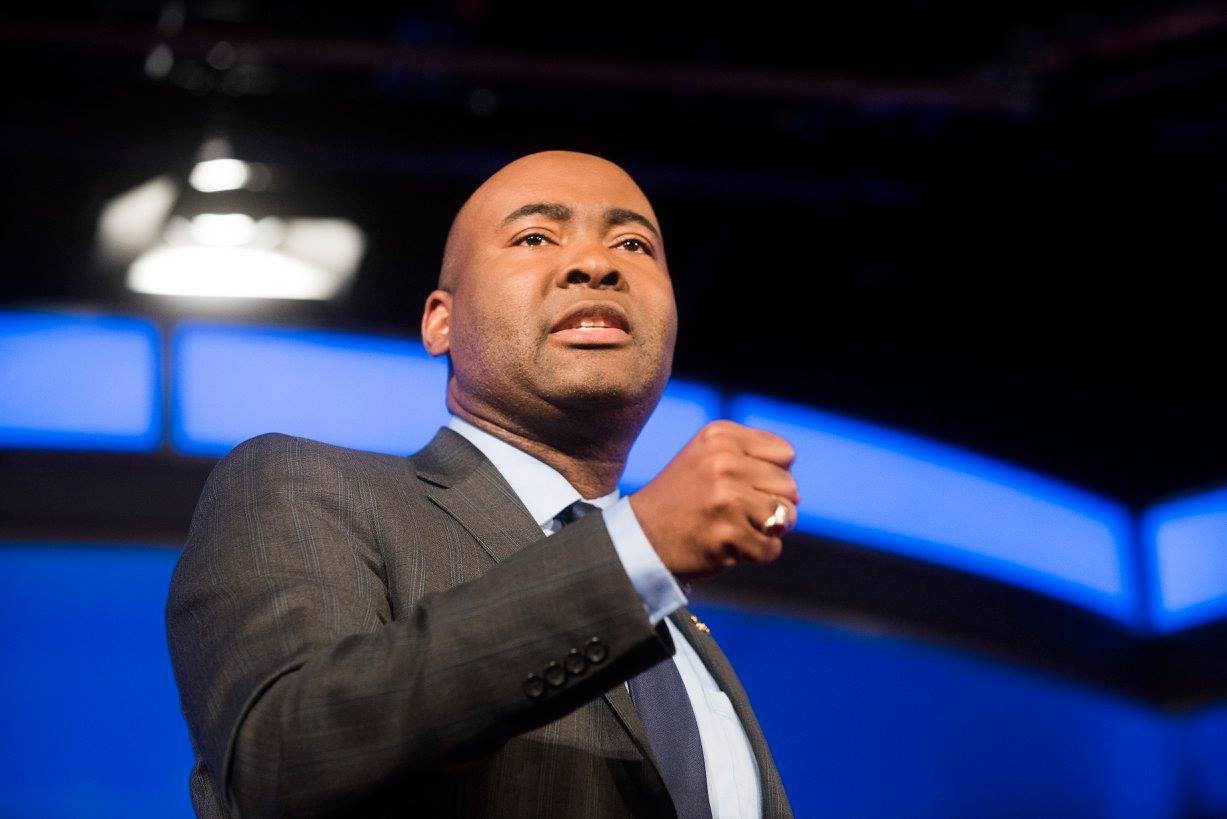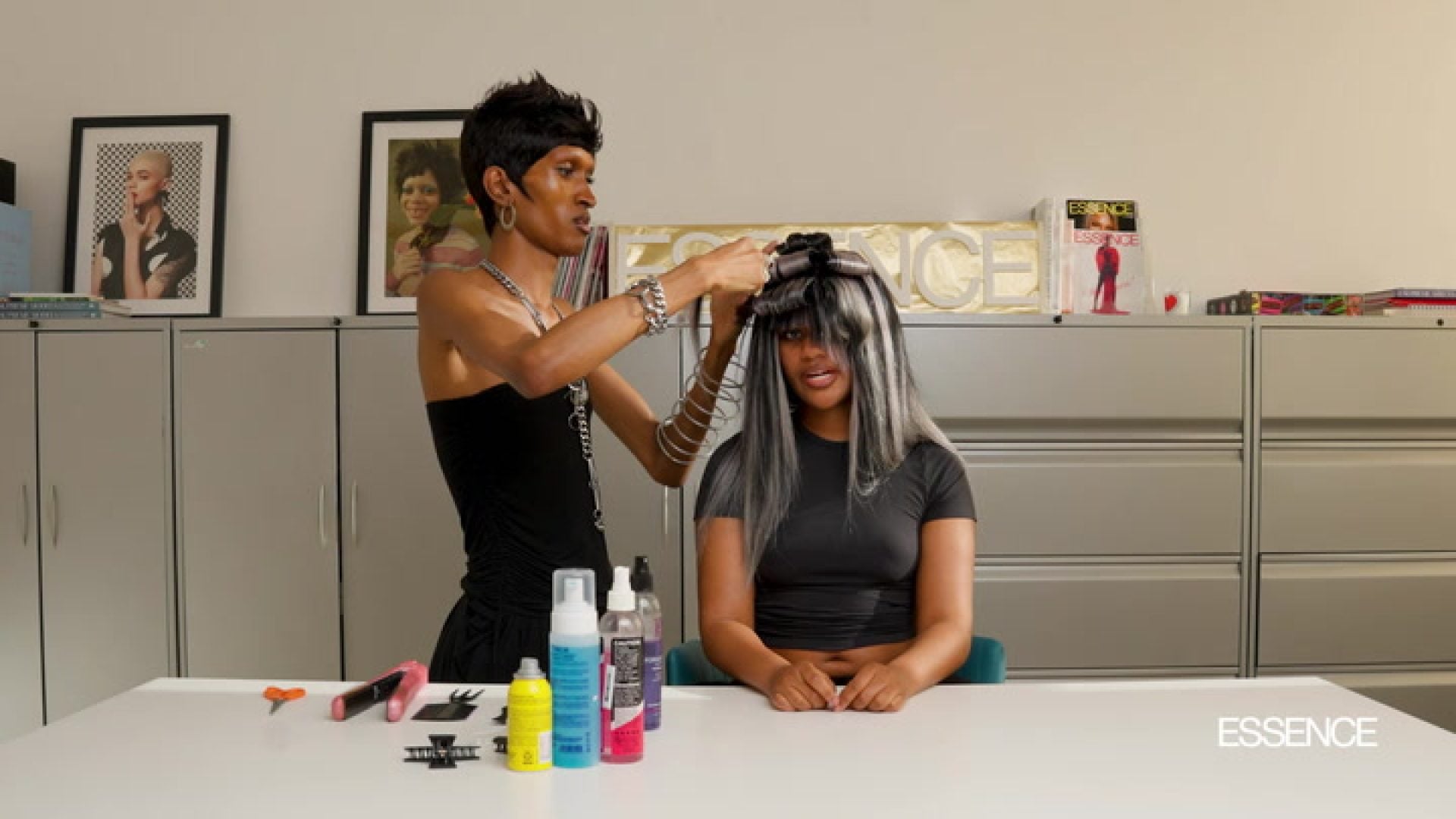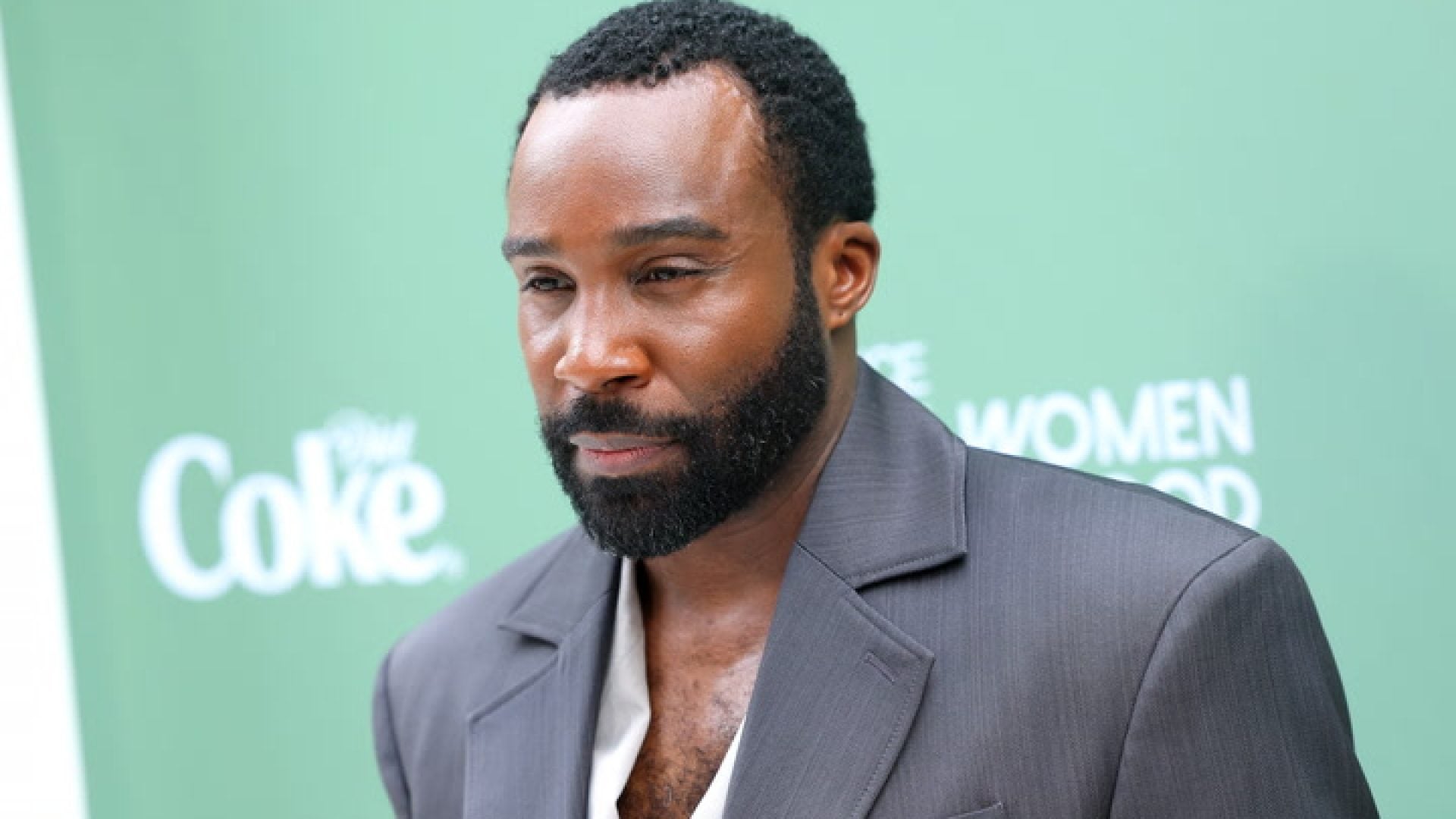“I’m Jaime Harrison, and I’m running for the United States Senate here in South Carolina.”
When I sit down with Harrison, the 44-year-old Democrat looking to replace Lindsey Graham in the United States Senate, it’s obvious he’s spent some time perfecting his pitch — at least, I’m sold. As quickly as he states his name for the camera I’ve brought to capture our exchange, he begins to explain why he’s so vested in defeating his three-term Republican opponent, a long-serving member in Congress who, as of late, is known less for his stance on a strong national defense than he is for doing a complete 180 on his feelings toward Donald Trump.
Once we’ve positioned ourselves at a quiet table on King Street in Charleston, South Carolina, Harrison shares with ESSENCE that Graham’s decision to put his relationship with the impeached president over his commitment to his constituents is exactly why he decided to enter the race. “Lindsey Graham is just rolling over to do whatever Donald Trump wants,” Harrison states. “I’m going to give him an opportunity to be a full-time pundit on Fox News while I go to Washington, D.C., and do the work of the people.”
Though the nature of politics requires that Harrison point out his competitor’s flaws, he graciously admits that the former South Carolina Congressman wasn’t always that way. “I like to say there are two Lindsey Grahams — there’s Lindsey Graham 1.0 and 2.0. The 1.0 version used to get support from Democrats and Independents and Republicans,” Harrison asserts, explaining why he’s attempting to win in a deep red state. “This new Lindsey Graham is not getting that type of support. And it’s because people want to send him home. They are tired of the pandering.”

Though the former Congressional aide to House Majority Whip Jim Clyburn is clear about why Graham should no longer remain on Capitol Hill, he’s even more clear on why he’s the best person to fight for South Carolina. Harrison is a native of Orangeburg, the son of a teen mom who was raised by working-class grandparents. He understands all too well the struggles of rural Americans. But beyond that, he’s in love with the state that reared him, helped him develop his passion for people and then called him back to help serve its interests.
That’s what drives the former ninth-grade social studies teacher, who counts the education of young South Carolinians among his top issues. “Here in South Carolina, our constitution says that the only obligation the state has to our school system, or to the students in general, is to provide a minimally adequate education,” Harrison reveals. “Just think about that.”
Having gone from an underperforming school district himself to degrees from Yale and from Georgetown Law, Harrison concedes that he knows what it’s like to be counted out. It’s only helped him to identify what resources are needed to propel students further. While an instructor in the classroom, the Orangeburg-Wilkinson High School alum says he had students who found it difficult to find their state on the map. “How can we send those kids out into the workforce?” he asks rhetorically. “How can we send them on to colleges and universities, or to trade schools?”
Insufficient minimal requirements of teachers, Harrison insists, coupled with the persistent issue of low salaries, is a formula that will cause a child’s education to implode. To that end, Harrison wholeheartedly affirms, “We have to do more. We have to do better. We need to increase the funding for public school teachers, because we’re about to hit a crisis in this state where we’re losing a whole generation of them because they can find other professions where they get more respect, more money and less stress.”
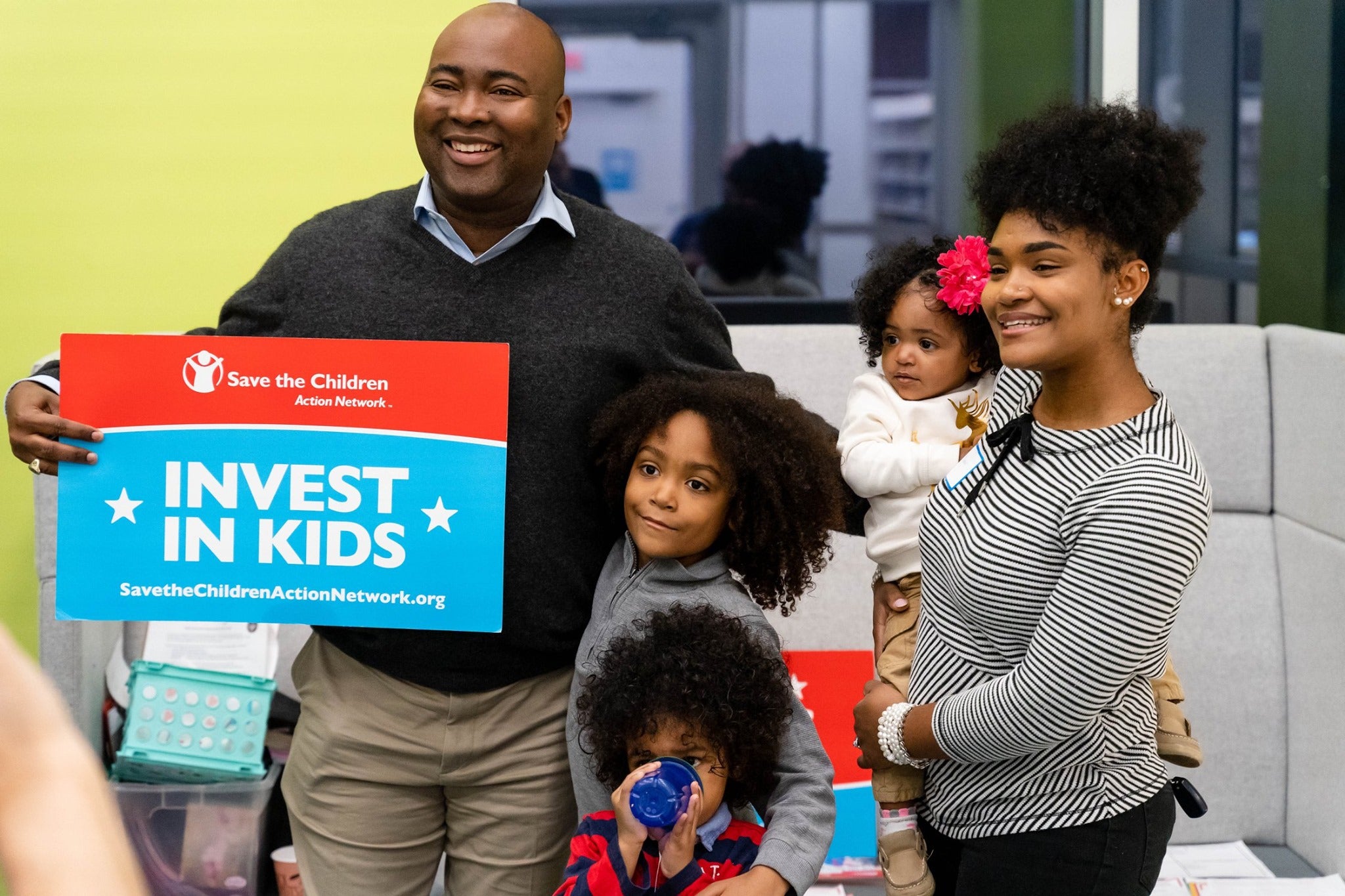
It makes the father of two emotional to think about. Great teachers were responsible for ordering his initial steps in politics, helping him grow from being a United States Senate Youth Program participant to a political science major at Yale and, now, a viable candidate for a Senate seat once held by segregationist Strom Thurmond and White supremacist “Pitchfork Ben” Tillman. Harrison describes the latter as the man who changed South Carolina’s constitution out of fear that a Black person would ever become governor. “This was a man who would go on the floor of the United States Senate and talk about the joys of lynching Black people,” he stresses. “This is the seat that I’m currently vying for.”
It’s not lost on Harrison that the structural racism found in South Carolina makes his Democratic agenda, for many, seem a bit hard to digest. In fact, he’s perfectly at peace with this. Full awareness of the uphill battle he’s climbing has made him mentally fit for the task ahead. Since launching his campaign almost exactly a year ago, the former chair of the South Carolina Democratic Party has been to every county in the state, talking with residents and listening to their concerns, putting aside party politics to fully connect with the people he hopes will one day be his constituents. Top of mind for them, he says, is healthcare — and this was before a national health crisis left much of America fearful for themselves and their families.
Harrison estimates that roughly 250,000 South Carolinians don’t have healthcare, in part because, he says, Graham chose to reject Medicaid expansion under Obamacare. “This is a state where two years ago, 14 out of the 46 counties had no OBGYNs,” an irritated Harrison reports. “This is a state in which we’ve had four rural hospitals that have closed over the past few years.” Harrison insists the declining access to care has been like “ripping a heart out of a community.” He wants people to vote for him this November so he can help find a solution.
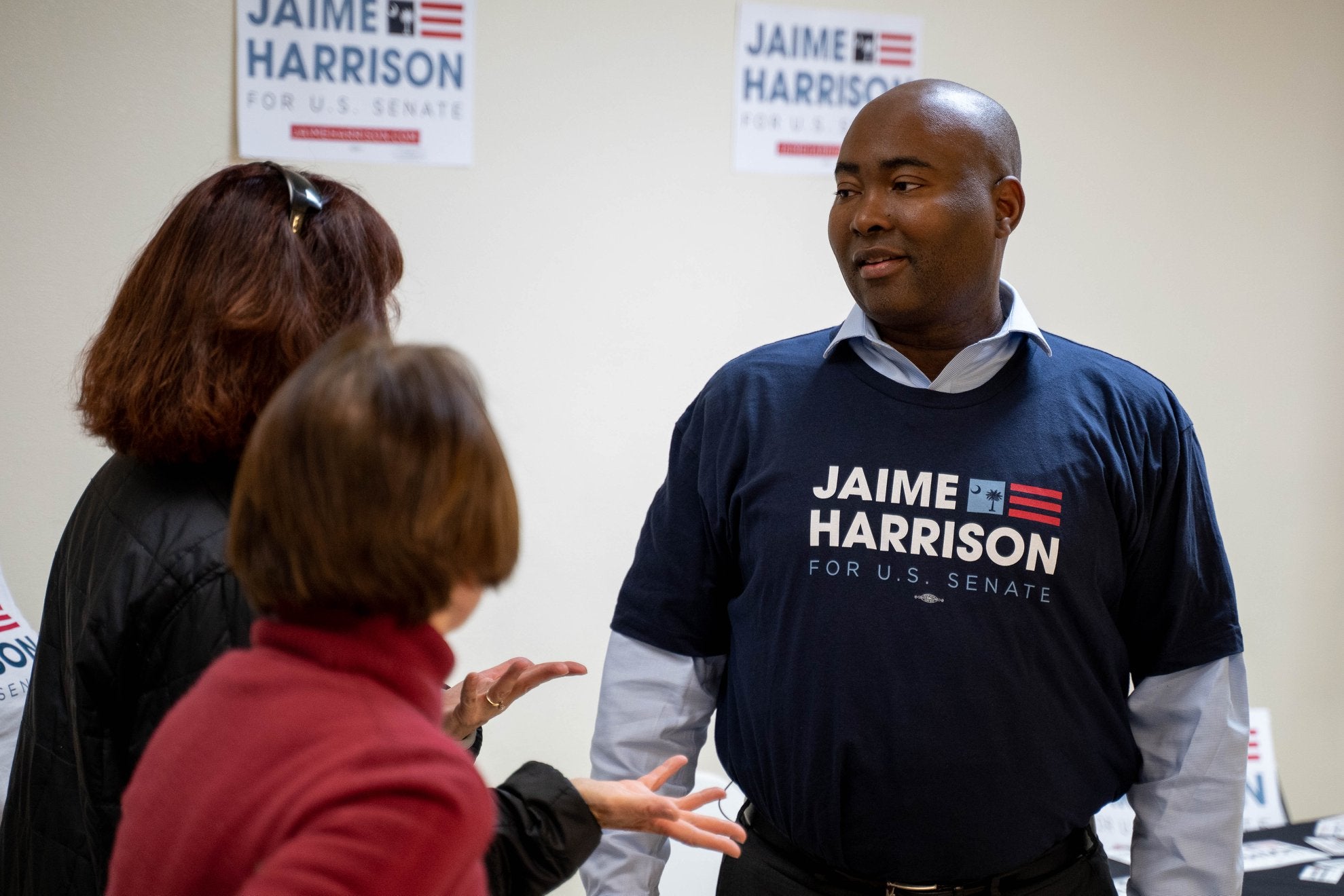
“The thing that’s really made a difference for me is that I’ve had the ability to see firsthand how passionate Jaime is about protecting the lives of South Carolinians and making the state the best place that it can be,” Harrison’s wife, Marie Boyd, says of the adjustment she’s had to make since the start of her husband’s campaign. In addition to Harrison’s core values, she credits him as being a good listener and someone who works hard to keep his promises. It’s something the devoted husband, excusing his language, tells me boils down to the fact that he, unlike Graham, actually “gives a damn.”
“From the very first time we met, I could tell that family was really important to him,” Boyd recalls. “On our first date, he talked a lot about his family, and he talked a lot about South Carolina. And those are two things that he cared about very much and two things that he was always going to stand for.”
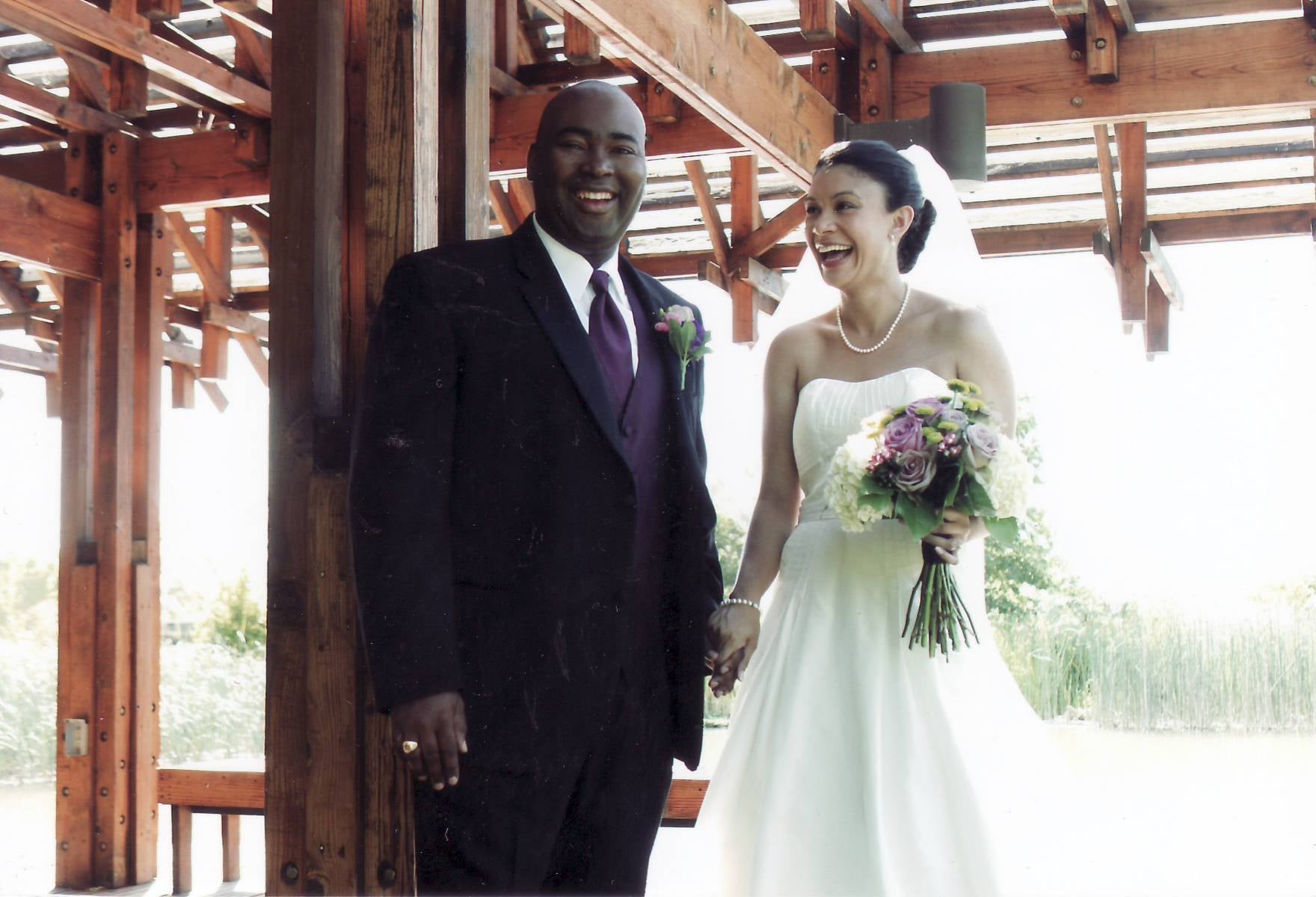
Before the video stopped rolling on the sit-down with Jaime, I had already seen that what his wife said is true. Twenty minutes in, a quick finger gesture from his comms team signaled it was time for our interview to wrap up. As previously shared via text, the proud dad had promised his 5-year-old he would take him to the park. In that commitment, he refused to fail. But before heading to his car and journeying back to Columbia, the dark horse candidate in a critical Senate race leaves me with this:
“They told me I couldn’t go to law school, and I went to Georgetown. They told me I would just be a regular staffer on Capitol Hill, and I ended up being one of the top ones there. Right now they’re saying, once again, ‘You can’t win in the United States Senate.’ And I’m telling them — watch me.”
